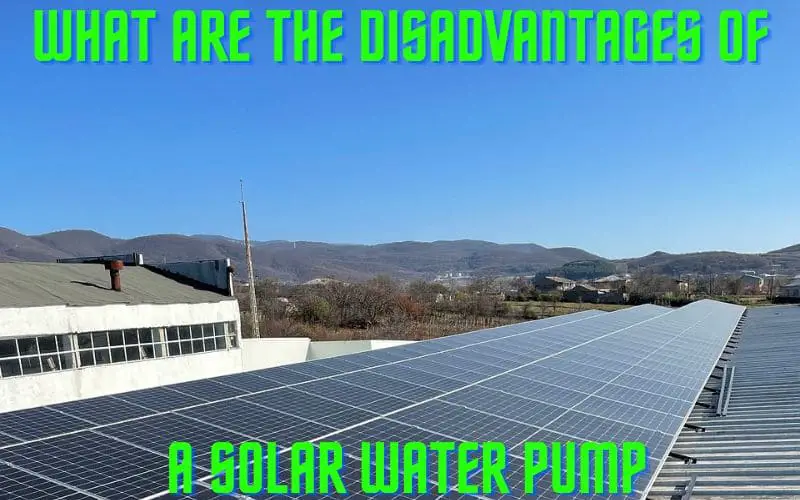What Are The Disadvantages Of A Solar Water Pump? We Find Out!

Introduction
Welcome to our comprehensive exploration of solar water pumps. In this article, we will delve into the advantages and disadvantages of utilizing solar water pumps for various applications. Solar water pumps have gained significant attention as sustainable and cost-effective alternatives, but they also come with their own set of challenges that we will thoroughly examine.
Answer to the Question
“What are the disadvantages of a solar water pump?” This question is the focal point of our discussion. To answer this, we will dissect the environmental impact, reliability concerns, efficiency, and performance of solar water pumps to gain a holistic understanding of their drawbacks.
Environmental Impact
Climate Change Concerns
Solar water pumps play a role in reducing carbon emissions and mitigating climate change. However, the manufacturing process of solar panels and water pump systems contributes to the carbon footprint. Additionally, the disposal of old or malfunctioning solar panels presents environmental challenges, resulting in e-waste concerns.
Land Use Impact
When considering the land use impact of solar water pumping systems, it’s important to recognize both the benefits and potential drawbacks associated with this technology. While solar water pumps require minimal land for installation, the large-scale installation of solar panels for water pumping systems can have significant implications for the local environment and wildlife habitats.
- Habitat Loss: The development of solar panel arrays for water pumping can result in the loss of natural habitats for various species of plants and animals. This can disrupt the existing ecosystem and lead to a reduction in biodiversity.
- Altered Drainage Patterns: The alteration of land for solar panel installation can impact natural drainage patterns, potentially leading to changes in water flow and accumulation in the area.
- Disturbance to Flora and Fauna: The construction and operation of solar panel systems may cause disturbances to the local flora and fauna, leading to changes in animal behavior and plant distribution.
- Microclimatic Effects: The shading effect of solar panels and altered land use can create microclimatic variations, which may impact surrounding vegetation and wildlife.
Reliability Concerns
Dependence on Sunlight
- Solar water pumps rely on sunlight to operate, making them highly dependent on consistent sunlight exposure.
- During overcast days or in regions with limited sunlight exposure, the pumping capabilities may be significantly reduced, leading to potential water supply challenges.
- This dependence on sunlight highlights the importance of strategic placement of solar water pump systems in areas with adequate sunlight exposure.
Maintenance and Repair
Taking care of solar water pumps and associated equipment require specialized skills and knowledge. In remote areas, accessing trained technicians for repairs can be challenging, leading to downtime and interruptions in water supply. Additionally, the high initial investment in solar water pumps may result in financial constraints for maintenance and repair activities.
Efficiency and Performance
Water Output Variability
Solar water pumps exhibit variability in water output based on sunlight intensity and seasonal changes. This variability can pose challenges in agricultural irrigation, livestock watering, and other applications requiring consistent water supply. Adapting to the fluctuating water output requires careful planning and consideration of alternative water storage solutions.
Energy Conversion Loss
The conversion of solar energy into mechanical energy in water pumps involves energy losses due to inefficiencies in the conversion process. These energy losses affect the overall performance and effectiveness of the solar water pump system, leading to lower energy conversion efficiency and potential underutilization of solar energy resources.
Conclusion
In conclusion, while solar water pumps offer numerous advantages, it is crucial to acknowledge and address their inherent disadvantages. Understanding the challenges associated with solar water pumps is essential for informed decision-making and effective implementation of this sustainable technology.

